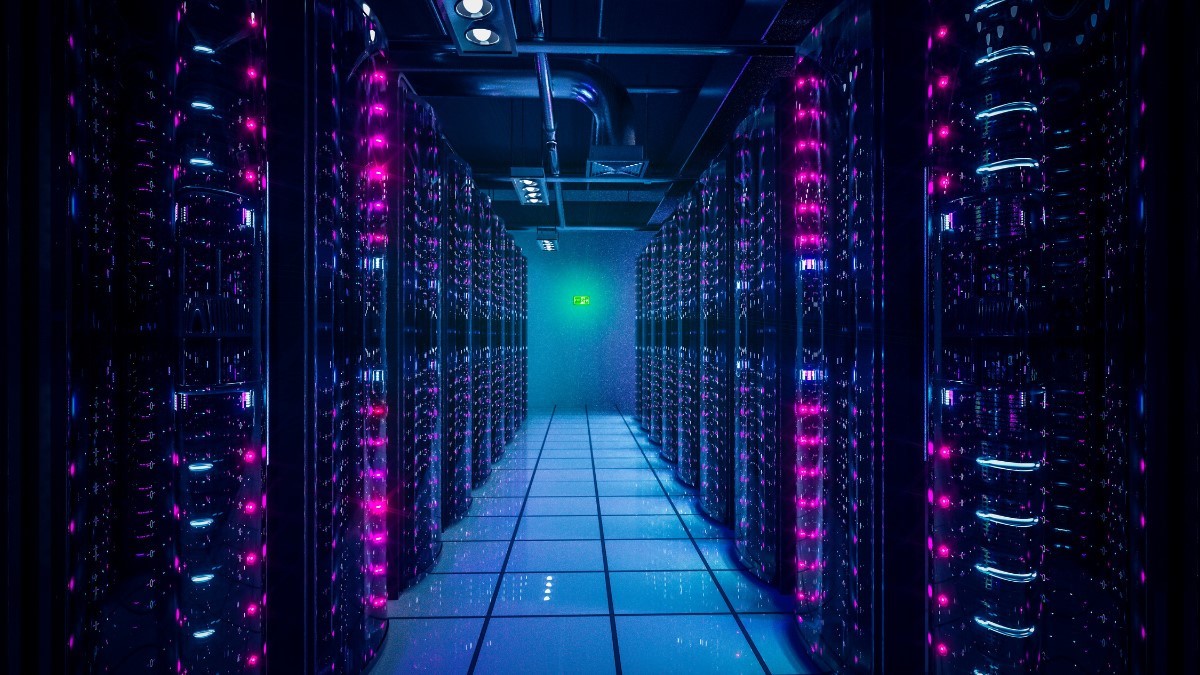With an expansion potential that could reach 4,750 MW in more than seven million square meters, the datacenter city offers a unique opportunity for Brazil to consolidate itself as one of the global leaders in the information technology scenario.

According to Gartner, global end-user spending on public cloud services is expected to total US$723.4 billion in 2025, with all cloud segments recording double-digit growth next year. The data was released on November 20, during the consultancy’s Annual Conference on IT Infrastructure, Operations and Cloud Strategies, held in London, England. The study also revealed that by 2027, 90% of the organizations surveyed will adopt hybrid cloud models, showing that this is not a “wave”, but an evergreen model of dealing with data management.
Given this scenario, and added to the fact that the use of Artificial Intelligence tools is increasing, becoming one of the main technological trends for 2025, the datacenter market remains buoyant.
The dizzying growth in computing demand is the reason why companies – and governments – around the world are racing against time to set up and deliver new data centers that can handle the processing and operationalization that the cloud, AI, Internet of Things (IoT), among other tools, require to operate.
 “We are seeing a boom in the data center construction, operation and maintenance market, demanding public and private investments, and also contributing to the generation of qualified jobs in the long term, because even though we have tools that automate the functioning of an operations center, the human being is still an important tool in this equation, as a link between end users and the machine,” he says. Ricardo Solda, Business Development Manager at Adistec Brasil.
“We are seeing a boom in the data center construction, operation and maintenance market, demanding public and private investments, and also contributing to the generation of qualified jobs in the long term, because even though we have tools that automate the functioning of an operations center, the human being is still an important tool in this equation, as a link between end users and the machine,” he says. Ricardo Solda, Business Development Manager at Adistec Brasil.
In this regard, Adistec's Data Center specialist comments on the “City of Data Centers”, which will be implemented in Eldorado do Sul (RS) and will boost the state's economic recovery after the floods of May 2024. The project, carried out in partnership with Scala Data Center, foresees the construction of the “largest and most innovative” digital infrastructure project in South America, with an investment of US$1.5 billion in the first phase alone, which will generate more than three thousand direct and indirect jobs.
“With an expansion potential that could reach 4,750 MW in more than seven million square meters, this datacenter offers a unique opportunity for Brazil to consolidate itself as one of the global leaders in the information technology scenario”, reinforces Solda.
Energy alternatives
The executive points out that Brazil is a promising place to receive this infrastructure, not only because of its large user potential, but also because it has physical spaces and different renewable energy sources (solar, wind and hydroelectric) to supply data centers. Currently, energy consumption is one of the highest operating costs of a data center and also a negative point in terms of sustainability, as these environments consume around 1% of the planet's total energy demand, according to the International Energy Agency, accounting for 0.3% of global CO2 emissions.
“Large data center projects in São Paulo, Rio Grande do Sul, Ceará, Rio Grande do Norte and Bahia have already been mapped in terms of energy demand by the Ministry of Mines and Energy (MME). In Rio de Janeiro, the Port of Açu is a strategic location to attract data processing centers with up to 1 gigawatt (GW) of capacity. Brazil has always been known as a country of great natural beauty and now we have this tropical location as an attraction in terms of electricity production,” comments Solda.
Data repatriation
Another aspect that contributes to the Brazilian data center market boom is the data repatriation process, that is, a movement that brings back critical data and even complete company operations from the public cloud. This trend is driven by a maturing use of the cloud, with a correct assessment of costs, security and processes by managers, who have assessed that it is more economically sound or easier to control servers in private clouds or in local data centers (on premises or colocation).
“Today, we have a mature scenario in the use of cloud, converging towards a hybrid model with multicloud (use of public and/or private cloud) and private servers in companies, according to the specificities of each business. Managers realized that updating their infrastructure was better for the operation than losing control over information and facing latency in its access, so data repatriation is something to be seen as normal and not as a failure of the public cloud model”, he ponders. Jose Roberto Rodrigues, Country Manager and Alliance Manager LATAM at Adistec.
Data sovereignty also plays an important role in this aspect of seeking greater control over user information, especially when it became public that big tech companies use Brazilians' interactions on social media to train their AIs. In relation to companies and research centers, the implication is to have control of digital infrastructure to be able to store their data securely, away from the eyes of the competition.
This is one of the reasons why Mission 4 of the “New Industry Brazil” plan, coordinated by the National Council for Industrial Development (CNDI), has R$2 billion from the National Bank for Economic and Social Development (BNDES) and the Telecommunications Services Universalization Fund (Fust) to invest in the construction of data centers nationwide to boost the digitalization of Brazilian companies.
“These resources can be accessed by internet providers with articulated projects to bring broadband internet connectivity to hard-to-reach locations, reducing connectivity deserts and low signal quality in all regions of Brazil. When a businessperson is going to expand their operations, they wonder whether they will really have enough consumers to pay for the investment. In the case of data centers, we have an almost pent-up demand for computing capacity, because from the largest company to the average user, there is no one who can live without the facilities provided by the digital environment,” concludes Rodrigues.
About Adistec
Adistec is one of the largest value-added IT distributors in Latin America, with a presence in 17 countries. Headquartered in Miami (USA), it operates in four distinct business areas – Distribution, Education, Professional Services and Cloud Services. Its portfolio includes global strategic partners from the main leading brands focused on data center infrastructure and information security solutions, in addition to a broad network of resellers with nationwide coverage. Learn more at www.adistec.com.

















